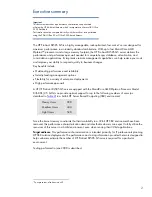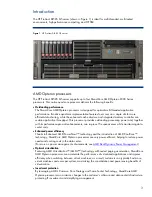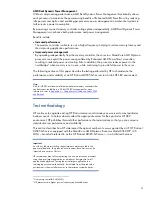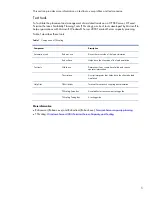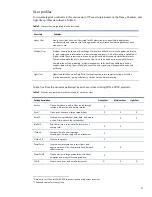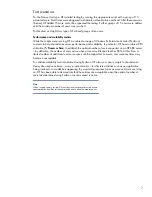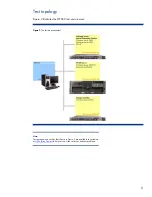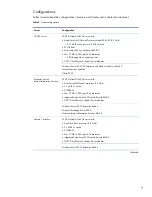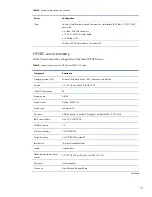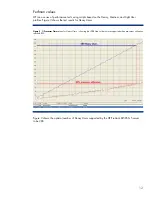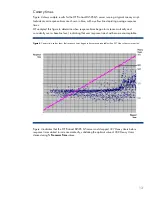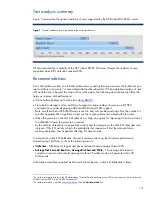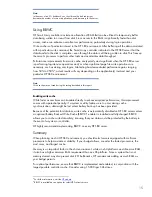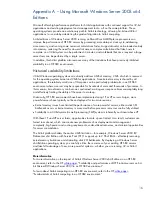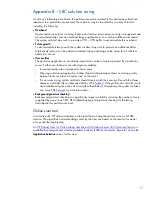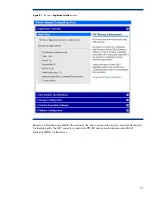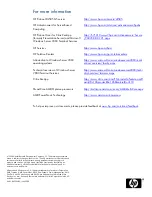
Note:
In the event of an I/O bottleneck, you should tune the disk subsystem,
decrease the number of users or applications, or add memory to the server.
Using BBWC
HP Smart Array controllers include an allocation of RAM that can be utilized to temporarily buffer
data being written to or read from disk. Since access to this RAM is significantly faster than disk
access, cache can enhance overall server performance, particularly during login operations.
Write cache is of particular interest in the HP SBC environment. After buffering all the data associated
with a particular write command, the Smart Array controller indicates to the HP SBC server that the
data transfer to the disk is complete – even through the data is still being written to disk. This frees up
the server’s processor to perform other tasks and accelerates data throughput.
Performance improvements from write cache are typically most significant when the HP SBC server
is performing log-intensive operations and/or when significant page file write operations are
necessary, such as during user logins. Lab testing has demonstrated performance gains ranging
from 50% to 250%
; actual results will vary depending on the application(s) involved and your
particular HP SBC environment.
Note:
Write cache was not used during the testing described in this report.
Enabling write cache
While faster access times can translate directly to enhanced system performance, this improvement
comes with a potential penalty: if a system or utility failure were to occur during cache
synchronization, data might be lost unless battery back-up has been provided.
Because of the potential for data loss, write cache is automatically disabled on HP SBC servers unless
an optional Battery Backed Write Cache (BBWC)
enabler is installed and fully-charged. BBWC
allows you to cache write data safely, knowing that your data would be protected by the battery in
the event of a system or controller.
HP highly recommends implementing BBWC on every HP SBC server.
Summary
When planning an x64 HP SBC environment, you should select servers equipped with multi-core
processors to help maximize scalability. If your budget allows, consider the fastest processors, the
most cores, and largest cache.
Memory is an important factor in the x64 environment: while an x64 platform can utilize more RAM,
it also has a higher minimum RAM requirement than an x86 platform. Since a system that is not
memory-starved may also prevent disk I/O bottlenecks, HP recommends adding as much RAM as
your budget permits.
For optimal performance, ensure that BBWC is implemented and enabled, in conjunction with the
largest possible controller cache. Consider using 15,000 rpm SAS drives.
8
For further information, visit the
9
BBWC is available as an option for select HP ProLiant servers.
15


